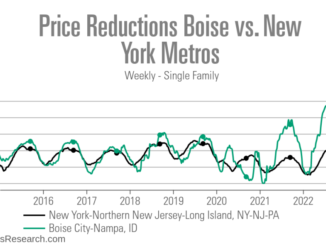Real estate tech firm Voxtur Analytics Corp. on Wednesday announced that it has released an Attorney Opinion Letter (AOL) product for VA direct and VA-backed home loans as a compliant alternative to title insurance.
Voxtur previously announced this year that it had produced an AOL for Fannie Mae loans.
The announcement this week came in response to updates to the VA Lenders Handbook from the Department of Veterans Affairs, which announced it would accept AOLs as an alternative to title insurance, effective Sept 29.
In a statement, Voxtur CEO Jim Albertini said the product will help veterans “close the affordability gap and build generational wealth through homeownership.”
In a previous statement to HousingWire, Albertini said AOLs as an alternative to title insurance, “is an established practice that provides security and coverage to the lender and borrower comparable to that of title insurance. As this alternative continues to grow in popularity, we anticipate that misinformation will continue to be released, particularly by those that see an alternative product as a competitive threat. The reality is that innovation like this leads to more efficient processes and lower costs that benefit homeowners, and that is exactly what we should all be striving to achieve.”
AOL products have begun to proliferate the market since Fannie Mae made its announcement in April (Freddie Mac began accepting AOLS two years ago). In September, United Wholesale Mortgage, the largest wholesale lender in the country, announced that it would be launching AOLs, which it claimed could save borrowers up to $1,100 on purchase loans and about $800 on refis.
The title insurance industry has spoken out forcefully against AOLs. The American Land Title Association, the industry’s main lobbyist, says it has not noted any considerable savings in using AOLs versus a traditional title policy. ALTA claims that the risks posed by AOL coverage, using an AOL, may cost a consumer more in the long run. The industry group has also said alternatives to title insurance “pose an even greater risk to the housing finance system.”



